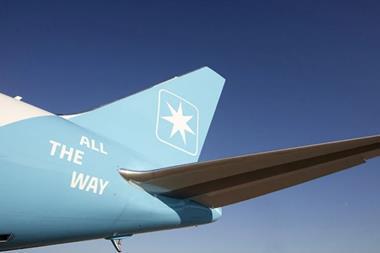Second-tier hubs Budapest (BUD), Düsseldorf (DUS) and Hamburg (HAM) airports have joined forces to promote their cargo operations under the slogan 'Connect Differently'.
The niche European trio are all investing in new facilities and equipment, as cargo volumes at the three airports continue to grow.
Budapest Airport in Hungary last month started construction of its 20,000 sq m Cargo City, part of its €60m BUD2020 development programme.
Budapest, which saw a 39 % increase in cargo volumes from 2015 to 2017, handled 141,500 tonnes of air cargo from October 2017 to September 2018.
Last year, BUD opened two express facilities with a total area of 16,000 sq m to process increasing volumes from the express and e-commerce sectors.
“Budapest is emerging as the leading Central European cargo hub, within reach of almost 20 countries,” said René Droese, executive director property and cargo at the Hungarian gateway.
“Cargo-friendly airports, and particularly regional hubs, which often enjoy less congestion and more flexibility, have an important role to play in airfreight’s future."
Droese continued: “Our 24/7 operations allow us to cater to business all over the globe, and our continuous expansion means more businesses view us as the ideal location, with world-class facilities, able to capitalise on this growth.”
Düsseldorf Airport Cargo is a 100% subsidiary of DUS in Germany, which is restructuring to be able to handle up to 200,000 metric tonnes of cargo a year.
The hub is also investing in two customised airside temperature controlled dollies for the transport of pharmaceutical goods from its 12,700 sq m Cargo Processing Area (CPA) to the aircraft.
Düsseldorf Airport Cargo was the first company in Germany to be certified by IATA’s Center of Excellence for Independent Validators (CEIV).
DUS has a 450 sq m cool storage for perishables and pharmaceuticals with temperature ranges from 2C to 8C and from 15C to 25C, with another 800 sq m storage facility under construction.
“Our regions represent strong industrial power, and the logistics market is looking for new direct solutions to distribute air cargo on time and cost efficiently,” said Gerton Hulsman, managing director, Düsseldorf Airport Cargo, adding: “We are an ideal partner to support those needs.”
Hamburg Airport in Germany has invested around €50m in the new Hamburg Airport Cargo Centre (HACC).
With a direct connection to the apron and a multi-user concept, HACC has a total capacity for around 150,000 tonnes of freight per year.
“Second-tier airports like BUD, DUS, and HAM are able to process cargo swiftly and this, combined with our customer focus and flexibility makes us an attractive option for freight customers,” said Alexander Mueller, head of cargo, Hamburg Airport.
“Hamburg as the third largest aviation centre in the world and with its third largest container port in Europe is also one of the largest business regions in Germany. In cooperation with Düsseldorf and Budapest airports our position is optimal.
“There are possibilities to bundle the flow of goods among the three airports, so-called triangular transports, as well."
The three hubs will be on booth 5313 at TIACA’s Air Cargo Forum 2018 in Toronto, which runs from October 16 to 18.
Read more Cargo Airport Newsnews










